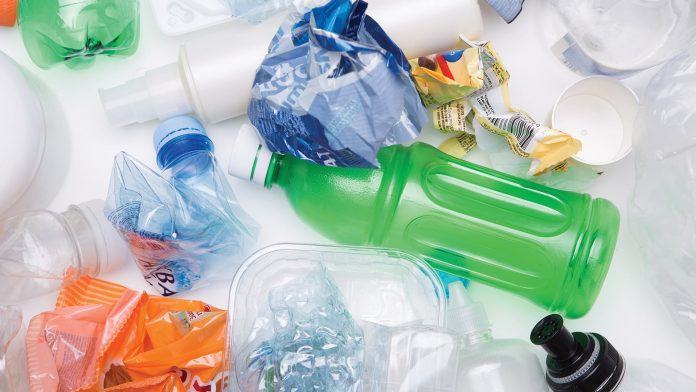Antonino Furfari from Plastics Recyclers Europe highlights the key challenges to be overcome in order to make all plastics fit into the EU’s circular economy ambitions.
The circular economy model needs to be adopted by a variety of different industries as there is an increasingly urgent need to change the way in which we produce, consume and dispose of our waste. This is particularly important when we consider plastics, which need to be redesigned and their waste management improved. According to the European Commission, every year, Europeans generate 25 million tonnes of plastic waste. However, less than 30% is collected for recycling and even less actually completes the recycling process. On a global scale, 85% of beach litter across the world is made up of plastic. These figures stress the importance of a circular approach to plastics.
Even today, plastic is improperly discarded and often ends up in the natural environment after disposal. Retaining the maximum value of waste at the end of its life via increased collection, efficient sorting, quality recycling, as well as making products fully recyclable, are key to making plastics circular.
A strategy towards making plastic circular
Plastics improve our everyday life. They provide us with lightweight solutions for transportation, protection for our food and allow innovation in medicine and new technologies. Thanks to their multifunctional role, they are already contributing to the circular economy. However, the way in which plastics are produced and managed means there is still room for improvement. Today, we need to ensure that plastics are being produced sustainably and managed properly when they are at the end of their life cycle. This involves ensuring that collection, sorting and recycling happen in an efficient and economical way.
The European Commission adopted the first ever European strategy for plastics in a circular economy in January 2018, with an aim to transform the way in which plastics are designed, used, produced and recycled in the EU. Europe is in a prime position to become a pioneer of the green economy and to offset the negative externalities of the linear production model.
Recycling of plastic brings a concrete solution to plastic waste as it keeps the resources in a loop and constantly filters the waste back around the circle. It is an important waste management option as it guarantees environmental benefits as it moves throughout the process.
An urgent demand for a circular solution
Despite the innovation of biodegradable plastic products, the best solution is still recycling and reusing plastics. Mixing of traditional and biodegradable plastics in waste streams is putting current efforts to increase plastic recycling rates in jeopardy. Biodegradation implies that the resources are only used once and this underscores the importance of implementing separate collection schemes in order to successfully incorporate plastics in the circular economy.
Typically, biodegradation occurs when the products are exposed to high temperatures for an extended period of time, meaning that optimum biodegradation usually happens under industrial conditions. Once the biodegradable plastics are at landfill, this process is automatically limited due to a lack of oxygen. In marine environments, biodegradable products react very differently and often, their degradation is slowed down even further as the process thrives on specific climate zones.
However, in a circular economy, plastic litter can be captured and fed back into the economy through recycling. Meanwhile, reducing the energy needed to produce new plastic products, due to recycling old material, allows us to save crude oil resources, resulting in a substantial reduction of CO2 emissions. Replacing new material with a recycled substitute can reduce emissions by up to 80%.
Industry challenges preventing a circular approach to plastics
The main challenge within the European industry revolves around the redesign of products that are currently on the market, in order for them to be fully compatible with recycling technologies. Plastics Recyclers Europe and the Association of Plastics Recyclers have developed a global definition, governing the use of the term ‘recyclable’ in relation to plastics packaging and products. This definition is the first step to having a common understanding in the industry of what recyclability entails and why it is a fundamental step within the circular economy model.
The definition states that plastic products must meet four conditions to be considered recyclable:
- The product must be made with a plastic that is collected for recycling, has market value and/or is supported by a legislatively mandated programme.
- The product must be sorted and aggregated into defined streams for recycling processes.
- The product can be processed and reclaimed/recycled with commercial recycling processes.
- The recycled plastic becomes a raw material that is used in the production of new products.
Despite the definition establishing a harmonised approach, thus providing a general direction for the industry to follow, the next steps will involve the development of recycling protocols, as per the type of products on the market. These protocols will be based on detailed testing which will verify the impact of a product on the quality of the recycled plastics. This whole procedure will demand co-operation from the industry as a whole, involving different actors. This process will start with raw material producers, converters, retailers, brand owners, collectors, waste management companies, sorters and end with recycling centres.
The two associations also stated that innovative materials, such as bioplastics, must demonstrate that they can be easily collected and sorted in large quantities, and they must be compatible with existing industrial recycling processes.
This common approach to plastic recyclability should be endorsed by the industry and is necessary to boost the rate of collected and recycled waste, and to fulfil the ultimate aim of improving the quality of recycling. Efforts must be equally spread throughout the industry including with consumers, Member States and municipalities if we want to fully succeed in effective waste management for plastics and make them completely circular.
Antonino Furfari
Managing Director
Plastics Recyclers Europe
+32 2 742 96 82
info@plasticsrecyclers.eu
Tweet @RecyclersEU
https://www.plasticsrecyclers.eu/



